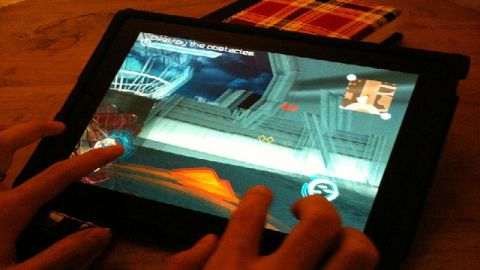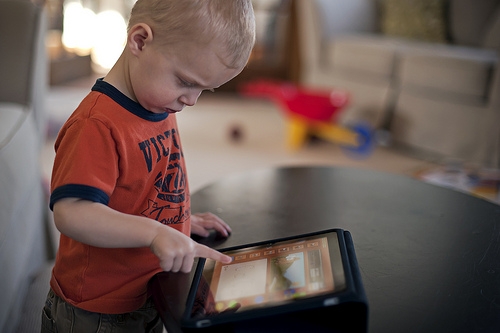Why the Tablet Changes Everything
For Strauss Zelnick, the tablet computer represents a kind of Singularity – a convergence of media and productivity into a single, highly portable, optimally viewable platform.

Sign up for Big Think on Substack
The most surprising and impactful new stories delivered to your inbox every week, for free.
“WTF? It’s basically a big, $500 iPhone – without the phone.”
Unless you’re an early-adopting technophile, this may have been your reaction to the release of iPad 1. Meanwhile, in the onyx-paneled boardrooms of the electronic media industry, an entirely different kind of conversation was taking place . . .
Featured Videos
What’s the Big Idea?
Strauss Zelnick has been haunting many of those boardrooms for many years, hashing out the ever-evolving issues around making – and keeping – music, television, movies, and videogames profitable. For Zelnick, the tablet computer represents a kind of Singularity – a convergence of media and productivity into a single, highly portable, optimally viewable platform.
He predicts that as storage and processing power shift to the Cloud, devices become lighter, and prices drop, more and more consumers will find tablets an indispensable accessory. And as CEO of Take-Two Interactive, producers of mind-bending games like Grand Theft Auto, BioShock, and L.A. Noire, Zelnick intends to be there when they arrive.
This Fall, Apple will launch iCloud, a service that will allow users to store online anything they’ve purchased through iTunes – music, movies, tv shows – and access it from any (Apple) device – iPhone, iPad, or computer. While it’s proprietary (iTunes only!), it will ease the media-
management frustrations of many an Apple-loyal consumer, and pave the way for less exclusive competitors.
What’s the Significance?
The real revolution will come when consumer devices’ processing power moves online. You think the iPad’s thin? Online processing power will facilitate the arrival of desktop-grade computers (interfaces, really) that you can roll up and stick in a tube.
Couple that with voice recognition that really works (sorry, Dragon.) and seamless, multi-user videoconferencing and you’ll have an entirely new level of ultra-portable office/entertainment center – one that may finally succeed in displacing the traditional office.
Now if only someone would invent a technology that keeps cars from running over us while we’re texting and playing videogames. That’s the final frontier of multimedia multitasking.
Sign up for Big Think on Substack
The most surprising and impactful new stories delivered to your inbox every week, for free.





